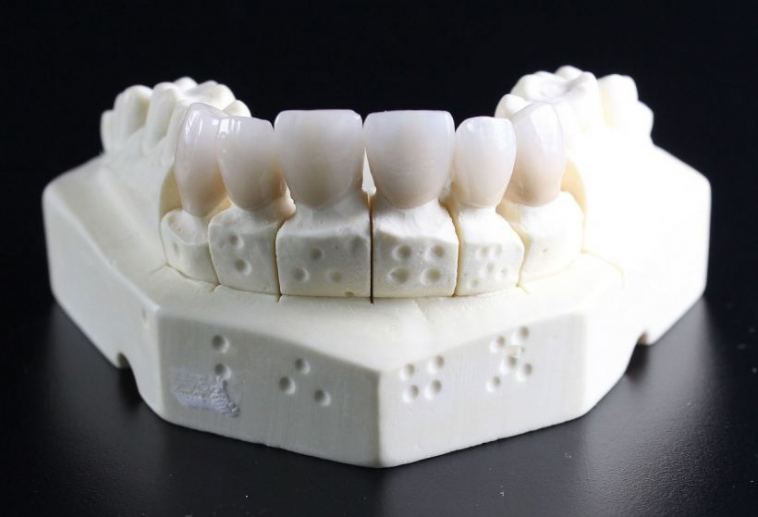- Like
- SHARE
- Digg
- Del
- Tumblr
- VKontakte
- Flattr
- Buffer
- Love This
- Save
- Odnoklassniki
- Meneame
- Blogger
- Amazon
- Yahoo Mail
- Gmail
- AOL
- Newsvine
- HackerNews
- Evernote
- MySpace
- Mail.ru
- Viadeo
- Line
- Comments
- Yummly
- SMS
- Viber
- Telegram
- JOIN
- Skype
- Facebook Messenger
- Kakao
- LiveJournal
- Yammer
- Edgar
- Fintel
- Mix
- Instapaper
- Copy Link
Introduction
In the United States, tooth loss remains one of the top dental issues experienced by adults aged 19 and up. Over time, it can cause detrimental effects to a person’s physical and emotional well-being. These can include loss of confidence and misalignment of the surrounding teeth.
Thankfully, with technological advancement, there are now multiple restorative treatments designed for this specific purpose. If you’re on the hunt for a natural-looking and durable solution, then dental implants are right for you.
What Is a Dental Implant?
A dental implant is a type of tooth replacement designed to mimic the function and aesthetic of real teeth. Its screw-like structure allows for a more stable and secure fit, especially when eating or talking. It is surgically inserted into the patient’s jawbone, after which a prosthetic tooth will be mounted on top.
Who Can Get Them?
Dental implants are a great option for people suffering from tooth loss due to problems like tooth decay and physical trauma. If you think this is the right treatment for you, consult an oral surgeon to find out if you’re a suitable candidate. Here are some general requirements you must meet:
- Good oral hygiene
- Healthy gums
- Adequate bone to support implants or allow bone grafting
What Are the Different Types of Dental Implants?
After an assessment, your specialist will recommend the kind of dental implant that will work best for your specific case. Here are the two main types:
Endosteal Implant
Endosteal implants are considered as one of the most common types of tooth replacement. They are surgically drilled into the patient’s jawbone. After that, a post called an abutment will be used to support the artificial teeth in place.
Subperiosteal Implant
These implants are placed above the jawbone. This procedure is recommended for patients who do not have a healthy jawbone or are not qualified to undergo bone augmentation.
Different patients will have varying experiences when getting implants. An oral surgeon might have to perform some additional treatments, depending on the state of the patient’s teeth or jawbone:
Bone Augmentation
This treatment is performed on patients who don’t have the ideal jawbone structure to support implants. Bone additives and other growth factors are used to stimulate the regeneration of bone.
Sinus Lift
Also known as sinus augmentation, this treatment is given to patients who lack bone height in their upper jaw. It is done by lifting the floor of the sinus and inserting a bone graft that will help secure the implants.
Ridge Expansion
This treatment is given to patients who have a narrow jawbone structure. A dental surgeon will insert a bone graft material in the ridge, located on the top of your jaw, to allow the placement of implants.
How Do I Take Care of My Dental Implants?
With proper care and maintenance, your dental implants could last for more than 25 years. Keep them in optimal condition by following these simple guidelines:
- Observe good oral hygiene. Implants require the same level of care as natural teeth. Make sure to brush, floss, and rinse regularly with an antibacterial mouthwash.
- Schedule routine checkups with your dentist. Regular trips to the dentist can help ensure that your implants are in optimal condition. Your doctor can also assess whether you need additional treatments like deep cleaning.
- Avoid unhealthy oral habits. Stray away from practices that can cause damage not only to your implants but also to your overall oral health. These include smoking and eating too many sugary foods that can cause decay.
How Much Do Dental Implants Cost?
The price of your dental implants may vary depending on several factors. This can include the number of teeth to be replaced, supplementary treatments, the number of implants needed to support the prosthetics, and so on. According to the American Academy of Implant Dentistry, a single-tooth replacement could range from $3,000 to $4,500. Consult your healthcare provider for different financial options like dental insurance, discounts, and packages.
Conclusion
Dental implants will not only improve your oral health condition but also help you regain your confidence in your smile. If you’re considering getting them, consult a dentist or a healthcare professional for possible treatment options. Doing so will ensure a more positive experience with your dental implants.


